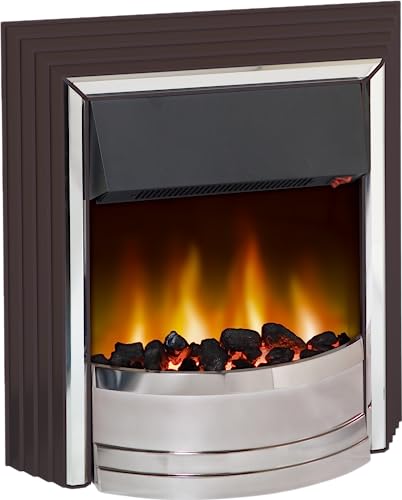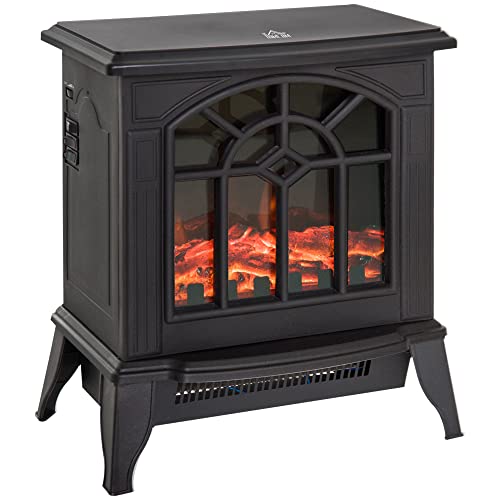5 People You Should Be Getting To Know In The Fireplace Surround Indus…
페이지 정보

본문
 Choosing a Fireplace Surround
Choosing a Fireplace SurroundWhether you use fireplaces for aesthetics or warmth, the perfect surround can give your living room personality. But choosing the right fireplace surround that is compliant with code and is safe can be a daunting task.
 These custom-built surrounds are built of non-combustible materials that adhere to the National Fire Code. They look stunning in any home style.
These custom-built surrounds are built of non-combustible materials that adhere to the National Fire Code. They look stunning in any home style.Simple Concrete Surround with Slabs of Marble
A fireplace surround can be a focal point of a room and it can bring warmth and elegance. It is constructed using a selection of materials and be designed to match different styles of design. Before choosing a fireplace design, it's important that you take into consideration the style and the budget of the space.
Marble fireplace surrounds provide a sophisticated look that complements various styles of design. They can be combined with rustic woods or more modern metals to create a unique and contemporary design. Marble is easy to maintain and can withstand high temperature, making it a great option for a surround.
Stone is a classic material for fireplace surrounds. It provides a timeless look that can be found in a variety of homes. It can be carved or etched to create a modern look or left unfinished to give it a traditional look. Stacked stone veneers are another popular option that can be used to give texture and depth to the interior of a room.
Granite is a very popular material for modern fireplace surrounds since it's strong and resistant to heat very well. It comes in a variety of patterns and colors so you can create different designs. Quartzite is a second option that can be shaped and made into a modern fireplace surround.
The installation of a concrete surround for a fireplace may be feasible for DIYers. It may seem like a daunting task, but it can be much simpler than you think if you work with professionals and plan ahead.
A professional is also recommended when building a marble fireplace surround because it requires particular attention to avoid damage. A carpenter who has experience will help you avoid costly mistakes.
If you plan to use tile as a fireplace surround, you must make sure it's rated for high temperatures. This information is usually located on the package or inquire with an employee at a home improvement shop.
Leaning Frame Surround
The fireplace surround is an essential design element that can change the entire room. It's not just designed to be aesthetically pleasing but also serves a practical function that is to safeguard the wall behind the fireplace from damage caused by fire and to reflect heat away from the room. It's available in a variety of materials and can be made to fit any style or decor.
Choosing the right material for the frame's leaning surround is essential to achieve an aesthetic that is purposeful. Concrete is a great option because it is strong and non-flammable. It also is attractive due to its natural texture and color. It is typically poured in a mold to allow you to choose the option of creating unique shapes.
When designing your leaning frame, be sure to include layers. This helps the piece look deliberate and thoughtful instead of being randomly placed on the wall or shelf. Leaning frames can be dangerous, so if you're planning to display heavier objects like lamps or vases, place a small piece of rubber drawer liner under the base to prevent them from sliding or damaging surfaces.
Consider adding a wooden board to the bottom of a concrete or marble surround. This will help to keep it in the right place. It will also help in reducing the weight of the item and prevent it from shifting while you sip a refreshing glass of wine or a cup of coffee in front of your electric fireplace.
Once you've chosen the material you'll use for the frame's leaning surround, it's time to start building the actual piece. First, mark the wall you're building with the dimensions of the surround and then use a saw to cut cleats along each of these points. Ensure that the top cleat is at least a foot longer than the shelf.
Next, screw the brackets onto the wall. Make sure that the bolts go through the backer board and then into the nail. If needed, drill the screw holes. Then, temporarily clamp the mantel on the backer board. Screw the mantel to the studs using the lag bolts (2-4 bolts per stud). Make sure that the bolts are sufficient to cover 2/3 of the mantel depth plus the thickness of the backer board.
Black Firebox Surround
Fireplace surrounds serve a practical and decorative function. They shield walls from damage caused by heat and also help to redirect some of the heat back into the room and can make a fireplace more of a focal point in a room. The most commonly used materials used for fireplace surrounds are wood fireplace and metal. Metal surrounds are sometimes required by building codes to safeguard nearby combustible surfaces or simply to enhance the aesthetic of a fireplace to make it look complete.
The fireplace in this contemporary living space has the black firebox surround, with white marble accents. The marble is more expensive and requires more care than wood, however it is a striking design element to the space. The black finish also ties with the dark tones of the furniture and wood flooring to create a cohesive appearance.
Concrete is not just for sidewalks and driveways. It's also a beautiful and versatile material that can be used to cover fireplaces wood. It can be poured into place and then shaped into any shape, offering the user a variety of design options. The concrete surround has been shaped into a curved profile which gives it an elegant, modern appearance that contrasts with the darker tones of the brick floor and wood wall.
Wood is another popular material used for fireplace surrounds. It is available in many colors and textures that will complement any decor. Wooden surrounds are less heavy and more economical than brick surrounds and can be finished to match the color of your existing hearth pad. The majority of wooden surrounds can accommodate decoration for your mantel including lamps and vases.
Some wood surrounds have an edging that covers the top of the mantel and houses the fireplace doors. The faceplate can be secured with decorative hinges or fasteners that mimic the look of the look of wrought iron.
It is essential to take into consideration the height of your fireplace when choosing a mantel made of wood. Building codes stipulate minimum clearance distances to prevent the spread of fire into the home. This distance may vary based on the kind of fireplace you have and also from state state or country country.
Simple Wood Surround
If you want your fireplace to have a classic wood look, there are different kinds of surrounds that you can purchase. Certain surrounds are constructed of solid oak, while others combine stone legs with oak or pine mantels. You can also select oak or pine fire surrounds that are designed to be a cost-effective and simple option.
Many people opt to purchase a pre-made wooden fireplace surround because it is an inexpensive way to get the style they desire without having to pay for the services of a carpenter. Some of the pre-made pine fireplace surrounds are available in a range of different finishes to match it to your existing decor.
Another kind of fire surround made of wood is one that is made by hand from a high quality oak. This can be stained a light oak color or left untreated so that the natural golden brown of the wood can be seen. This fireplace surround is suitable for gas or wood burning fires and can be fitted either with a flat or arched opening.
For those of you who have a bit more experience in DIY home improvement projects, there are a lot of tutorials available online to assist you in creating your own wood fire surround. This step-by-step guide from H2O Bungalow shows you how to create a rustic wood surround using pine.
The tutorial will show you how to construct the horizontal component of the fireplace surround first. Then, you will learn how to build the vertical pilasters or columns that support the mantel. After the columns or pilasters are built then you can place your mantel. The tutorial will show you how to install the crown molding, which will cover any gaps between the cladding of the wall and the wall surrounding it.
It is crucial to adhere to the local fire code when installing a wooden surround around the fireplace. It is recommended to keep the surround at least 6 inches away from the edge of the opening. It is also essential to use an adhesive that is non-flammable to join the decorative molding and ensure that it remains in place when the surround is set.
- 이전글Metal Ramps For Wheelchairs Tips From The Top In The Industry 24.12.19
- 다음글The Top Replace Toyota Car Key The Gurus Are Using Three Things 24.12.19
댓글목록
등록된 댓글이 없습니다.
